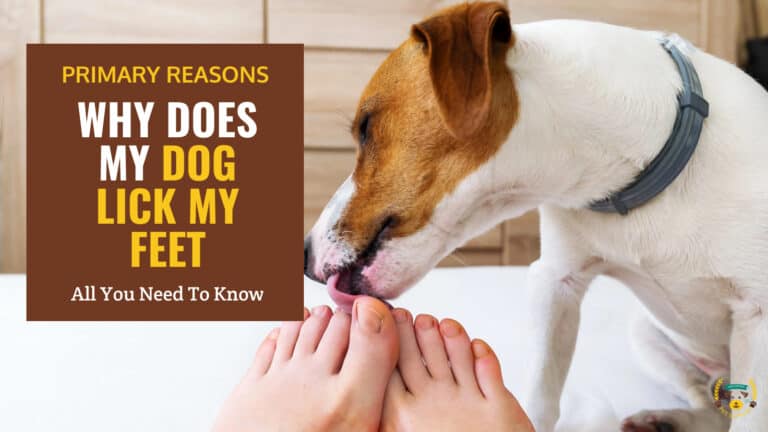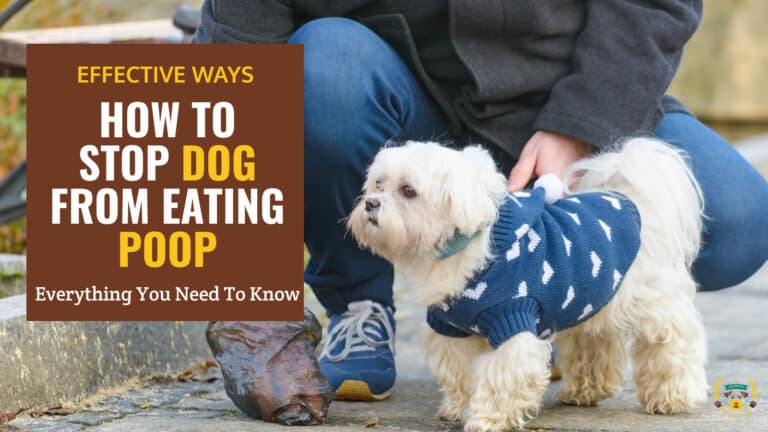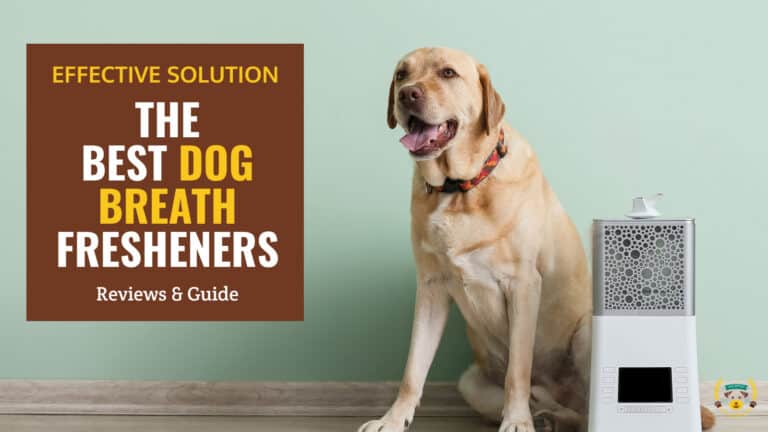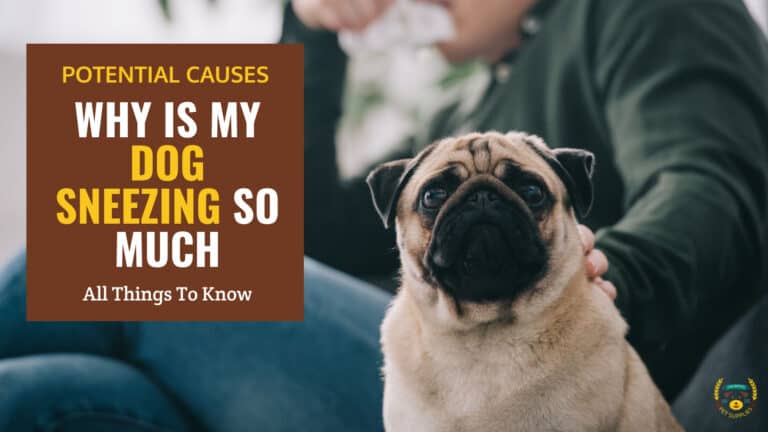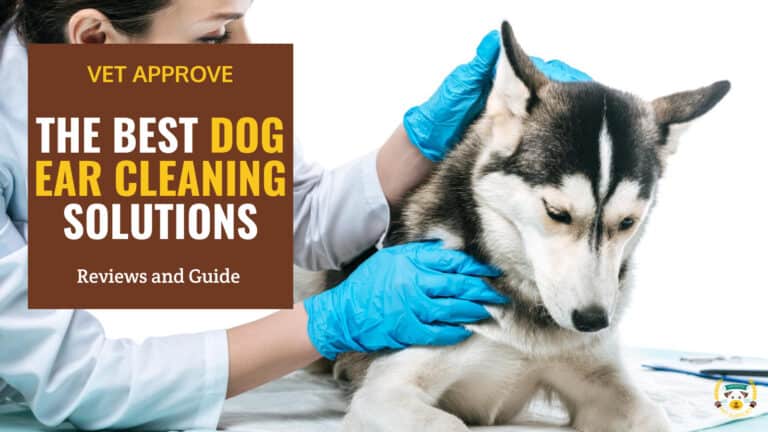How Long Can a Dog Go Without Eating?
Last updated: March 26, 2024
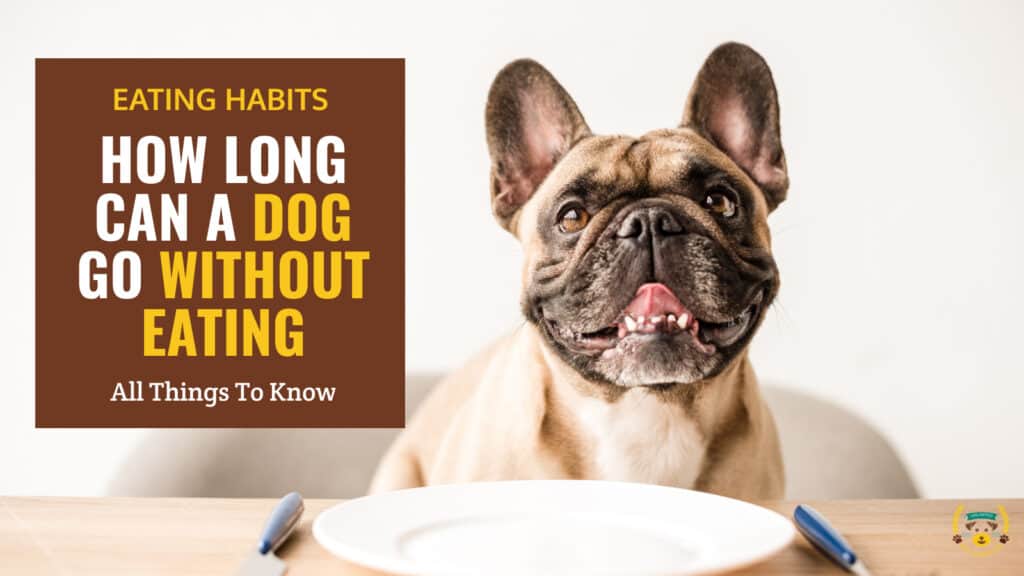
Summary
- Puppies need to eat 3-4 times per day due to high energy demands
- Adult dogs can go 24-48 hours without food depending on size and metabolism
- Senior dogs may require smaller, more frequent meals due to slower metabolism
- Higher body fat allows dogs to withstand fasting better
- Prolonged fasting risks include hypoglycemia, dehydration, and electrolyte imbalances
- Consult a vet after 48 hours of appetite loss, as it may indicate underlying health issues
Is your furry friend turning up their nose at mealtime? A dog's refusal to eat can be puzzling and worrying for any pet parent. While the occasional skipped meal is usually no cause for alarm, prolonged loss demands closer attention. How long can a healthy dog go without food before it becomes a serious concern? The answer may surprise you.
In this article, we'll explore the common causes behind a dog's dwindling appetite and when it's time to seek veterinary help. You'll gain a deeper understanding of your pup's eating habits and learn practical tips to entice even the pickiest eaters.
- 1) The Importance of Understanding Your Dog's Nutritional Needs
- 2) Factors That Influence How Long a Dog Can Go Without Eating
- 3) Signs That Your Dog May Be Experiencing Appetite Loss
- 4) Healthy Dogs and Fasting
- 5) Medical Conditions and Appetite Loss
- 6) Encouraging Your Dog to Eat
- 7) When to Seek Veterinary Assistance?
-
8)
Frequently Asked Questions
- 8.1) Can I force my dog to eat if they are refusing food?
- 8.2) Is it normal for dogs to skip a meal occasionally?
- 8.3) How can I tell if my dog is losing weight due to appetite loss?
- 8.4) Can stress or anxiety cause a dog to stop eating?
- 8.5) Are there any home remedies to stimulate a dog's appetite?
- 8.6) How often should I feed my dog to maintain a healthy appetite?
- 8.7) Can certain medications cause appetite loss in dogs?
- 9) Final Thoughts
The Importance of Understanding Your Dog's Nutritional Needs
Just like humans, dogs require a balanced diet to thrive. However, their nutritional needs differ from ours and can vary depending on factors such as breed, age, size, and activity level.
Failing to meet these needs can lead to health issues ranging from minor digestive upsets to severe nutrient deficiencies.
For a deeper dive into understanding your dog's specific nutritional requirements and making informed decisions about their food, check out our article on the things to consider while choosing dog food.
By familiarizing yourself with your dog's specific nutritional requirements, you can ensure they receive the proper sustenance to support their growth, development and overall vitality.
Factors That Influence How Long a Dog Can Go Without Eating

Several key factors come into play when determining how long your dog can safely go without food. These include the following:
Age
Puppies, with their growth and high energy demands, require more frequent meals than adult dogs. They can typically only go a few hours without eating before their blood sugar levels drop, potentially leading to hypoglycemia.
On the other hand, healthy adult dogs can generally last longer between meals, while senior dogs may have decreased appetite and require a more tailored approach.
Size
Smaller breeds have higher metabolic rates and smaller energy reserves compared to larger breeds. This means they may need to eat more frequently to maintain stable blood sugar levels.
Conversely, larger dogs can often go longer between meals due to their lower metabolic rates and greater energy stores.
Overall Health
A dog's overall health status significantly impacts its ability to withstand periods without food.
Dogs with underlying health conditions, such as diabetes, liver disease or gastrointestinal disorders, may have more difficulty regulating their blood sugar and may require more frequent, smaller meals.
Additionally, dogs recovering from surgery or illness may have decreased appetite and need special dietary considerations.
Signs That Your Dog May Be Experiencing Appetite Loss

Recognizing the signs of appetite loss in your dog is essential for prompt intervention. These signs may include:
- Refusing to eat or showing disinterest in food
- Weight loss or visible changes in body condition
- Lethargy or decreased activity levels
- Changes in bowel movements or stool consistency
- Vomiting or diarrhea
If you notice any of these signs, it's crucial to monitor your dog closely and consult with your veterinarian if the issue persists. They can help determine the underlying cause of the appetite loss and recommend an appropriate course of action.
However, if you're considering making changes to your dog's diet to tempt them to eat, it's important to understand what's safe for them to consume. You might be wondering, can dogs even eat cereal? Check out our article to learn more about what cereals are safe and appropriate for dogs.
In some cases, a change in diet may be necessary to address food allergies or sensitivities. For more information on choosing the right food for dogs with allergies, check out our guide on dog food for dogs with allergies.
Healthy Dogs and Fasting
When your furry friend skips a meal or two, it's natural to feel concerned. However, it's important to understand that healthy dogs can often go longer without food than you might think.
How Long Can a Healthy Dog Go Without Eating?
The answer to this question varies depending on your dog's life stage. Let's break it down:
Puppies

Growing pups have higher energy demands and smaller reserves, so they can typically only go a few hours without food before their blood sugar drops.
Puppies under 2 months old should be fed 3-4 times a day to maintain stable energy levels and support their rapid growth and development.
Adult Dogs

Healthy adult dogs can generally last longer between meals than their younger counterparts. Depending on their size and metabolism, they may comfortably go 24-48 hours without food.
However, it's still recommended that adult dogs be fed twice a day to maintain a consistent feeding routine and prevent digestive issues.
Senior Dogs

As dogs age, their metabolic rate slows down, and they may naturally eat less. While healthy senior dogs can still tolerate short periods without food, they may need more frequent, smaller meals to manage age-related health concerns and maintain a healthy body condition.
For senior dog owners, understanding common health problems in older dogs to watch for can be crucial in recognizing potential signs and seeking veterinary attention if necessary.
The Role of Body Fat and Muscle Mass in Fasting
Your dog's body composition plays a significant role in its ability to withstand periods without food. Dogs with a higher percentage of body fat have more stored energy reserves to draw from during fasting, while leaner dogs may need to eat more frequently to maintain their energy levels.
Muscle mass is also crucial, as it helps maintain your dog's strength and vitality. During periods of fasting, the body may break down muscle tissue for energy if fat reserves are depleted. This is why it's essential to maintain a balanced diet and regular exercise routine to support your dog's lean muscle mass.
Risks Associated with Prolonged Fasting in Healthy Dogs
While short-term fasting is generally well-tolerated in healthy dogs, prolonged periods without food can lead to potential health risks, such as:
- Hypoglycemia (low blood sugar)
- Dehydration
- Electrolyte imbalances (having too much or not enough of certain minerals)
- Hepatic lipidosis (fatty liver disease)
If your healthy dog goes more than 48 hours without eating, or if you notice signs of lethargy, vomiting, or diarrhea in conjunction with appetite loss, it's crucial to consult your veterinarian. They can help rule out any underlying health issues and provide guidance on how to safely reintroduce food.
Medical Conditions and Appetite Loss
Sometimes, a loss of appetite in your furry friend can signal an underlying health issue that requires prompt attention.

Common Medical Reasons for Appetite Loss in Dogs
Several health issues can lead to a decrease in your dog's appetite. Some of the most prevalent include:
Dental Issues
Painful dental problems, such as tooth decay, gum disease or oral infections, can make eating uncomfortable for your dog.
If you notice your pup drooling excessively, pawing at its mouth, or experiencing difficulty chewing, it's time to schedule a dental checkup with your vet.
Gastrointestinal Disorders
Digestive issues like inflammatory bowel disease, pancreatitis or intestinal blockages can cause nausea, vomiting and a decreased appetite.
If your dog's appetite loss is accompanied by diarrhea, constipation or abdominal pain, it's crucial to seek veterinary care promptly.
Infections and Illnesses
Viral or bacterial infections, such as parvovirus or kennel cough, can lead to fever, lethargy and a lack of interest in food. Other illnesses like liver or kidney disease can also cause appetite loss due to the buildup of toxins in your dog's body.
Chronic Diseases and Their Impact on Appetite
Certain chronic health conditions can have a long-term effect on your dog's appetite and overall well-being.
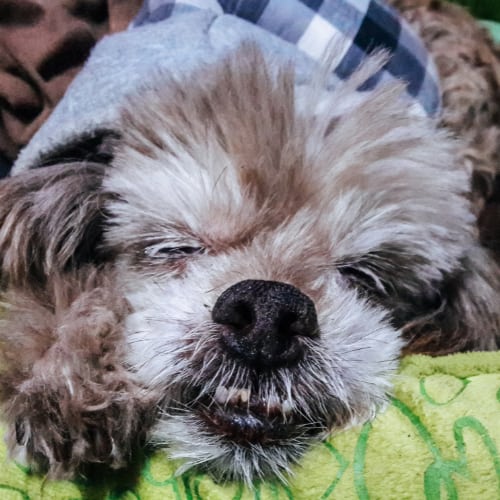
Kidney Disease
As kidney function declines, toxins can accumulate in your dog's bloodstream, leading to nausea, vomiting and decreased appetite.
Dogs with kidney disease may require a specialized diet and supportive care to manage their condition and maintain their quality of life.
Liver Disease
Like kidney disease, liver dysfunction can cause a buildup of toxins that affect your dog's appetite. Signs of liver disease may include jaundice (yellowing of the eyes and gums), weight loss and changes in stool color.
Early diagnosis and remedy are essential for managing liver disease in dogs.
Cancer
Various types of cancer can cause appetite loss in dogs, either due to the disease itself or as a side effect of treatment.
If your senior dog experiences unexplained weight loss, lethargy and a persistent decrease in appetite, it's important to discuss the possibility of cancer with your veterinarian.
The Importance of Seeking Veterinary Care for Prolonged Appetite Loss
If your dog's appetite loss lasts more than 48 hours, or if it's accompanied by other concerning symptoms like vomiting, diarrhea or lethargy, it's time to consult your veterinarian. They can perform a thorough physical examination, run diagnostic tests and develop a personalized treatment plan to address any underlying health issues and help restore your dog's appetite.
Encouraging Your Dog to Eat
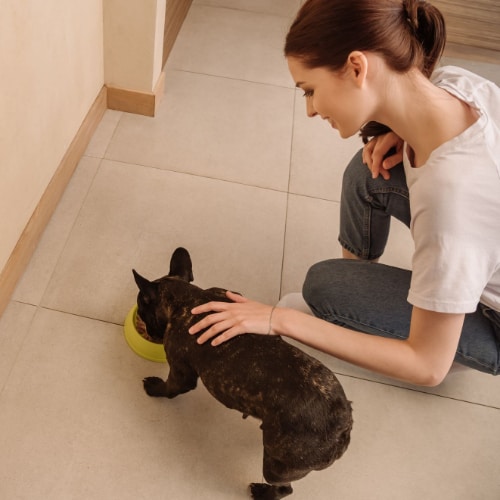
There are several tricks you can employ to entice even the pickiest of eaters. Let's explore tips for making mealtime more appealing and discuss the importance of feeding schedules, portion control and mental stimulation in promoting a healthy appetite.
Tips for Enticing a Picky Eater
Sometimes, all it takes is a little culinary creativity to tempt your dog's taste buds. Here are a few strategies to try:
Warming Up Food
Just like humans, some dogs prefer their meals served warm. Try microwaving your pup's food for a few seconds to release the enticing aroma and make it more palatable.
Be sure to stir the food thoroughly and test the temperature before serving to avoid burning your dog's mouth.
Adding Flavor Enhancers
If your dog is bored with its regular kibble, consider adding some low-sodium chicken broth, pureed pumpkin or a small spoonful of plain yogurt to its food.
These flavorful additions can make mealtime more exciting and encourage your pup to dig in. Just be sure to introduce new ingredients gradually and in moderation to avoid upsetting your dog's digestive system.
Trying Different Textures and Consistencies
Some dogs prefer the crunch of dry kibble, while others favor the softness of canned or moistened food.
Experiment with different textures and consistencies to find what appeals most to your pup. You can also try hand-feeding or using puzzle feeders to make mealtime more engaging and mentally stimulating.
Feeding Schedules and Portion Control
Establishing a consistent feeding routine can help regulate your dog's appetite and prevent overeating or picky eating habits. Aim to feed your dog at the same times each day, and be sure to measure out their portions based on their age, size and activity level. Avoid leaving food out all day, as this can lead to grazing and make it harder to monitor your dog's intake.
If your dog is prone to overeating, consider splitting their daily ration into smaller, more frequent meals. This can help prevent digestive issues and keep your pup feeling satisfied throughout the day.
The Role of Exercise and Mental Stimulation in Appetite
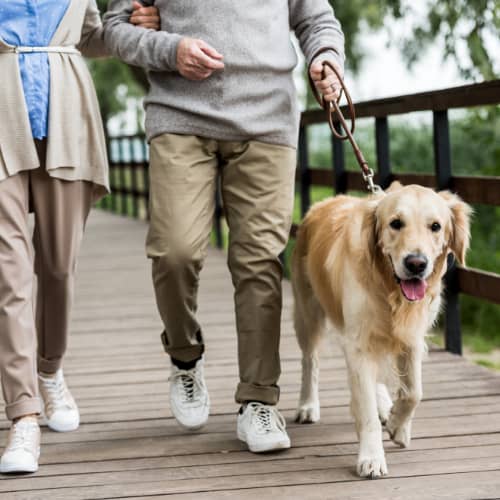
Like humans, dogs can lose their appetite if they're feeling bored, stressed or anxious. Regular exercise and mental stimulation can help alleviate these issues and promote a healthy appetite.
Aim to provide your dog with at least 30 minutes of moderate exercise per day, such as brisk walks, playing fetch or swimming. You can also engage your pup's mind with puzzle toys, training sessions and nose work games.
By keeping your dog physically and mentally engaged, you can help reduce stress, boost their mood and stimulate their natural desire to eat.
When to Seek Veterinary Assistance?
As a responsible dog owner, you know your furry friend better than anyone else. If you notice persistent changes in your dog's eating habits or overall health, it's crucial to trust your instincts and seek veterinary guidance.
Warning Signs That Indicate a Need for Immediate Veterinary Care
Certain symptoms should never be ignored; if you observe any of the following signs in conjunction with appetite loss, contact your veterinarian right away:
Lethargy Weakness
If your dog seems unusually tired, listless or weak, it could be a sign of an underlying health issue. Lethargy can be caused by a variety of factors, including infections, anemia or metabolic disorders. Your veterinarian can help determine the root cause and recommend appropriate treatment.
Vomiting and Diarrhea
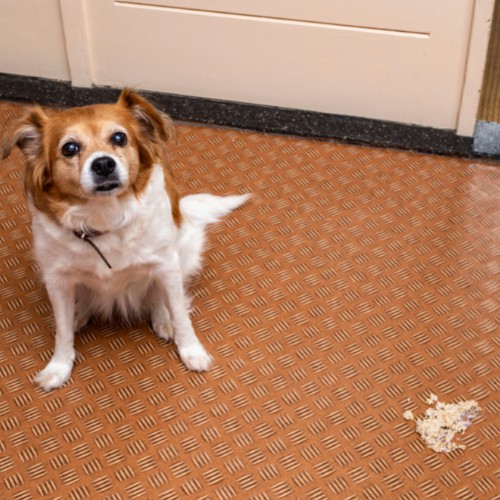
Persistent vomiting and diarrhea can quickly lead to dehydration and electrolyte imbalances, especially in puppies and senior dogs.
If your dog is experiencing these symptoms along with a loss of appetite, it's important to seek veterinary care promptly. Your vet may recommend fluid therapy, anti-nausea medication or other supportive care measures.
Rapid Weight Loss
While gradual weight loss can be managed through dietary changes and exercise, sudden or extreme weight loss is often a red flag for serious health problems.
If you notice your dog's ribs or spine becoming more prominent, or if they seem to be losing muscle mass, schedule a veterinary appointment as soon as possible.
Diagnostic Tests and Procedures for Identifying Underlying Health Issues
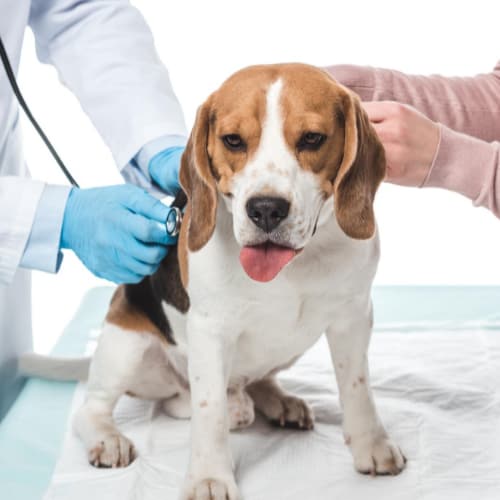
When you bring your dog to the veterinarian for appetite loss, they'll likely perform a thorough physical examination and ask you about your pet's medical history and recent behavior changes. Depending on their findings, they may recommend one or more of the following diagnostic tests:
- Blood work to assess organ function and check for signs of infection or anemia
- Urinalysis to evaluate kidney function and screen for urinary tract infections
- Fecal analysis to check for intestinal parasites or digestive issues
- X-rays or ultrasound to visualize the digestive tract and other internal organs
- Biopsy or fine needle aspirate to test for cancer or other abnormalities
These tests can provide valuable insights into your dog's overall health and help your veterinarian develop a targeted treatment plan.
Treatment Options for Appetite Loss and Related Conditions
The appropriate treatment for your dog's appetite loss will depend on the underlying cause. Some common interventions may include:
- Medications to manage pain, inflammation or nausea
- Antibiotics to treat bacterial infections
- Dietary modifications to address food allergies or sensitivities
- Fluid therapy to correct dehydration and electrolyte imbalances
- Surgery to remove foreign bodies or treat certain cancers
In some cases, your veterinarian may also recommend appetite stimulants or feeding tubes to help your dog maintain adequate nutrition during the recovery process.
Frequently Asked Questions
Now it's time to answer some frequently asked questions to help you learn everything you need to ensure your puppy is in good health.
Can I force my dog to eat if they are refusing food?
Forcing your dog to eat is not recommended, as it can lead to stress and further aversion to food.
If your dog is refusing to eat, try to identify the underlying cause and address it accordingly. If the issue persists, consult your veterinarian for guidance.
Is it normal for dogs to skip a meal occasionally?
Yes, it's not uncommon for dogs to skip a meal occasionally, especially if they're feeling a bit under the weather or have had a particularly active day.
However, if your dog consistently refuses food for more than 24 hours, it's important to monitor them closely and contact your vet if the issue persists.
How can I tell if my dog is losing weight due to appetite loss?
Signs of weight loss in dogs include a visible ribcage, a tucked-in waist and prominent spine or hip bones. You may also notice your dog's collar becoming looser or their energy levels decreasing.
If you suspect your dog is losing weight due to appetite loss, keep a record of their food intake and body condition, and discuss your concerns with your veterinarian.
Can stress or anxiety cause a dog to stop eating?
Yes, stress and anxiety can significantly impact a dog's appetite. Common stressors include changes in routine, new environments, separation anxiety, or conflicts with other pets in the household.
If you suspect your dog's appetite loss is related to stress or anxiety, try to identify and minimize the source of their distress, and consider discussing the issue with a professional.
Are there any home remedies to stimulate a dog's appetite?
Some home remedies for encouraging a dog to eat include warming up their food, adding low-sodium chicken broth or pureed pumpkin to their meals, or hand-feeding them small amounts of food. However, it's crucial to identify and address the underlying cause of the appetite loss, rather than simply relying on home remedies.
How often should I feed my dog to maintain a healthy appetite?
Generally, puppies require 3-4 meals per day, while adult dogs can typically maintain a healthy appetite with 2 meals per day. Senior dogs may benefit from smaller, more frequent meals to accommodate their changing metabolic needs.
Can certain medications cause appetite loss in dogs?
Yes, some medications can cause appetite loss as a side effect. These may include antibiotics, pain medications or chemotherapy drugs. If your dog is experiencing appetite loss and is currently taking any medications, discuss your concerns with your veterinarian. They may recommend adjusting the dosage, switching to a different medication or providing additional support to help manage side effects and maintain your dog's nutritional health.
Final Thoughts
In this article, we've explored the factors influencing appetite loss in dogs, from healthy fasting to medical conditions, and discussed strategies for encouraging eating and seeking veterinary assistance when necessary.
Regular monitoring of your dog's eating habits and overall health is crucial for detecting potential issues early on. While this information can guide you, consulting your veterinarian is the best way to ensure your dog receives personalized, expert advice tailored to their specific needs.
Your love, attention and commitment to your furry friend's well-being, combined with the guidance of your trusted vet, can help them maintain a healthy, happy life.
Thanks for reading!


